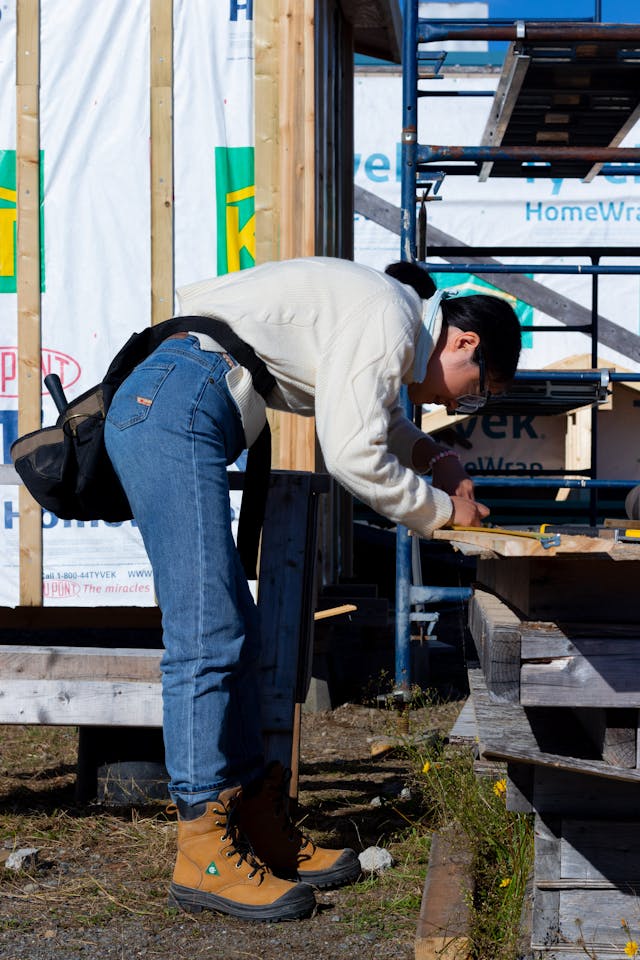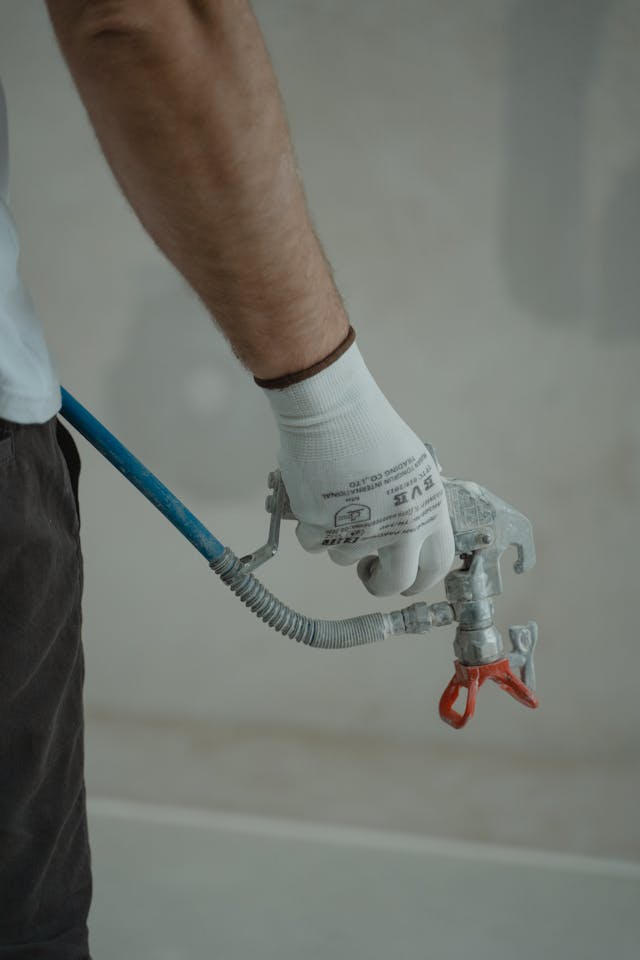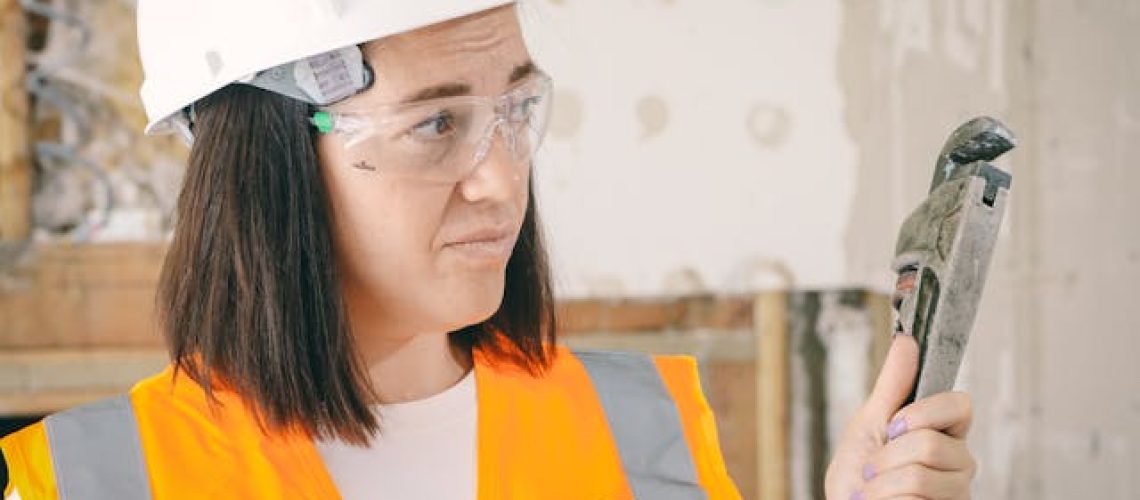Plumbing emergencies can strike at any time, and when they do, they can cause a lot of stress and potential damage to your home if not addressed quickly. Whether it’s a burst pipe, an overflowing toilet, or a sudden water leak, knowing how to react before professional help arrives can make a huge difference. In this guide, we’ll cover the most common plumbing emergencies and provide you with practical steps to handle them until you can call in an expert.
Burst Pipes
A burst pipe is one of the most severe plumbing emergencies you can face – it can lead to flooding, structural damage, and potentially expensive repairs if not dealt with promptly. Burst pipes can happen due to various reasons, including freezing temperatures, old pipes, or excessive water pressure.
What to do:
- Turn off the main water supply: Locate your main water valve (usually near the water meter or outside) and turn it off immediately. This will stop any more water from flowing into your home.
- Drain the taps: Turn on all cold water taps to drain any remaining water in the pipes. If you have a hot water system, turn it off and drain the hot taps as well.
- Identify the location of the burst: If possible, try to locate where the pipe has burst. This can help your plumber when they arrive.
- Call an emergency plumber: Once the situation is contained, it’s essential to get professional help as soon as possible. If you’re in Brisbane or surrounding areas, contact an emergency plumber in Coorparoo to handle the repairs.

Overflowing Toilets
An overflowing toilet can be a messy and stressful problem. Often caused by blockages or malfunctioning parts within the toilet, this issue needs quick action to avoid water damage and unsanitary conditions.
What to do:
- Stop the water flow: Remove the toilet tank lid and push the flapper down to stop more water from entering the bowl. Alternatively, turn off the water valve located behind the toilet to cut off the water supply.
- Use a plunger: If you suspect a blockage is causing the overflow, try using a plunger to remove the obstruction. Be sure to use a good seal around the drain and push with steady force.
- Avoid flushing again: Until the issue is resolved, do not flush the toilet again as it can worsen the overflow.
- Contact a plumber: If plunging doesn’t work, it’s time to call a professional to address the problem.
Water Leaks
Water leaks can range from minor drips to more severe, hidden leaks within your walls or under your floors. Regardless of the size, leaks can cause long-term damage if left untreated, including mould growth, water damage, and increased utility bills.
What to do:
- Turn off the water supply: For major leaks, especially if you can’t locate the source, turn off the main water valve to prevent further water loss.
- Contain the leak: Use buckets or towels to catch any dripping water. If you can access the leaking pipe, try using plumber’s tape or a temporary patch to control the flow.
- Check for hidden leaks: If you notice unexplained wet spots, dampness, or a sudden increase in your water bill, it could be a sign of a hidden leak. These are harder to detect and often require a professional plumber to assess the situation.
- Seek professional assistance: It’s always best to call a plumber to inspect and fix the issue properly, particularly if you’re dealing with persistent or hard-to-find leaks.

Blocked Drains
Blocked drains can be caused by a buildup of grease, soap, hair, or foreign objects. Whether it’s a blocked sink, shower drain, or even a sewer line, this issue can cause unpleasant odours and slow drainage, eventually leading to water backing up into your home.
What to do:
- Try a plunger: For minor blockages, a plunger can often dislodge the obstruction. Make sure the plunger covers the drain entirely, and use a firm, up-and-down motion.
- Use a drain snake: If plunging doesn’t work, a drain snake or auger can help break up or pull out the blockage.
- Avoid using chemical cleaners: While it may be tempting to use over-the-counter chemical drain cleaners, these can often cause more harm than good by damaging your pipes.
- Call a professional: For persistent blockages or if the drain snake doesn’t resolve the issue, it’s time to call an experienced plumber to assess and clear the drain.
Gas Leaks
Though not technically a water-related plumbing emergency, gas leaks are critical and must be addressed immediately. Gas leaks can pose a serious risk of fire or explosion and should never be handled without professional assistance.
What to do:
- Turn off the gas supply: Locate your gas meter and shut off the gas supply to your home.
- Ventilate your home: Open windows and doors to allow gas to escape and ensure there’s plenty of ventilation.
- Do not use electrical appliances: Avoid turning on or off any electrical devices or light switches, as these can ignite the gas.
- Call for help immediately: Get out of the house and contact your gas company and an emergency plumber to repair the leak.
Dealing with plumbing emergencies can be stressful, but with the right steps, you can minimise damage until a professional arrives
Remember, quick action is key – whether it’s a burst pipe or an overflowing toilet, knowing how to react can save you both time and money. If you find yourself in need of immediate assistance, don’t hesitate to reach out to a professional and get the expert help you need to restore your home’s plumbing system to full working order.


